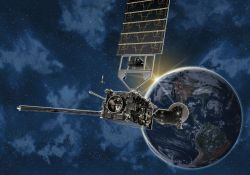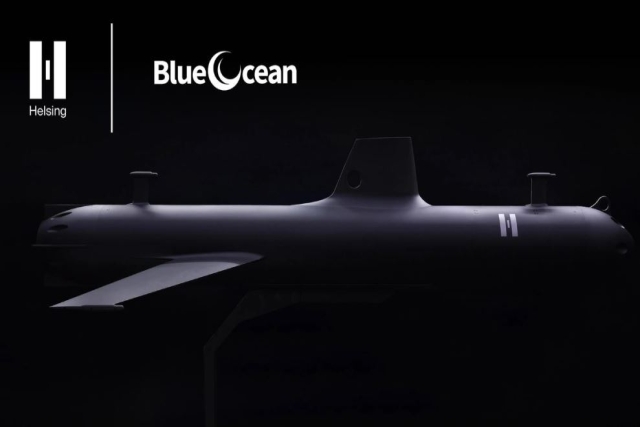Brazil Launches Geostationary Satellite For Communication Security

Brazil, whose communications sovereignty was hit by the USA National Security Agency (NSA) spying on its telecom infrastructure, has launched a Defense and Strategic Communications Geostationary Satellite (SGDC). The system in is expected to ensure telecom and internet security by preventing unauthorized access to its networks.
Visiona Tecnologia Espacial S.A. and Telebras formally signed a $560 Million (R$1.3 billion) contract today to do so; the system to be delivered by the end of 2016.
The project involves the Ministries of Communications, of Defense, and of Science and Technology. The satellite will be operated by Telebras on the K (civilian) band and by the Ministry of Defense on the X (military) band.
Visiona is a joint venture of Embraer and Telebras and will be responsible for integration the SGDC system, which will expand broadband internet access in remote regions of the country, through the National Broadband Program (PNBL) and ensure Brazil’s sovereignty over the communications of its Armed Forces.
After the signing of the contract, Visiona will formalize the hiring of suppliers and will begin developing and integrating the system. The selected companies are Thales Alenia Space (TAS) to supply the satellite and Ariane Space to launch the device. The contract with suppliers also provide for the transfer of technology to Brazilian companies, and that task will be supervised by the Brazilian National Space Agency (AEB).
“The SGDC system not only will meet the needs of Telebras’ National Broadband Program (PNBL) and the strategic communications of the Brazilian Armed Forces, but it is also an opportunity for Brazil to ensure the sovereignty of its strategic communications in both the civilian and military areas,” explains Telebras President Caio Bonilha.
“We are honored to have been chosen to supply a system so important to the country,” states Visiona President Nelson Salgado. “We trust that this program represents the beginning of a long-term relationship, by establishing a Brazilian space systems integration company, similar to what Embraer represents for the aeronautical and defense segments.”
The SGDC system will also provide full security for the strategic communications of the government, as well as military communications, because it will be controlled in Brazil at stations that are located in military areas, under the coordination of Telebras and the Ministry of Defense.
The acquisition of its own satellite for Brazilian civilian and military communications is a strategic decision for ensuring the nation’s sovereignty. The satellites that currently provide services to Brazil are either controlled by stations outside of the country or the attitude control is in the hands of companies run by foreign capital. In either of the cases there are risks of interrupted services, in situations of international conflict or due to the political or economic interests of others.









